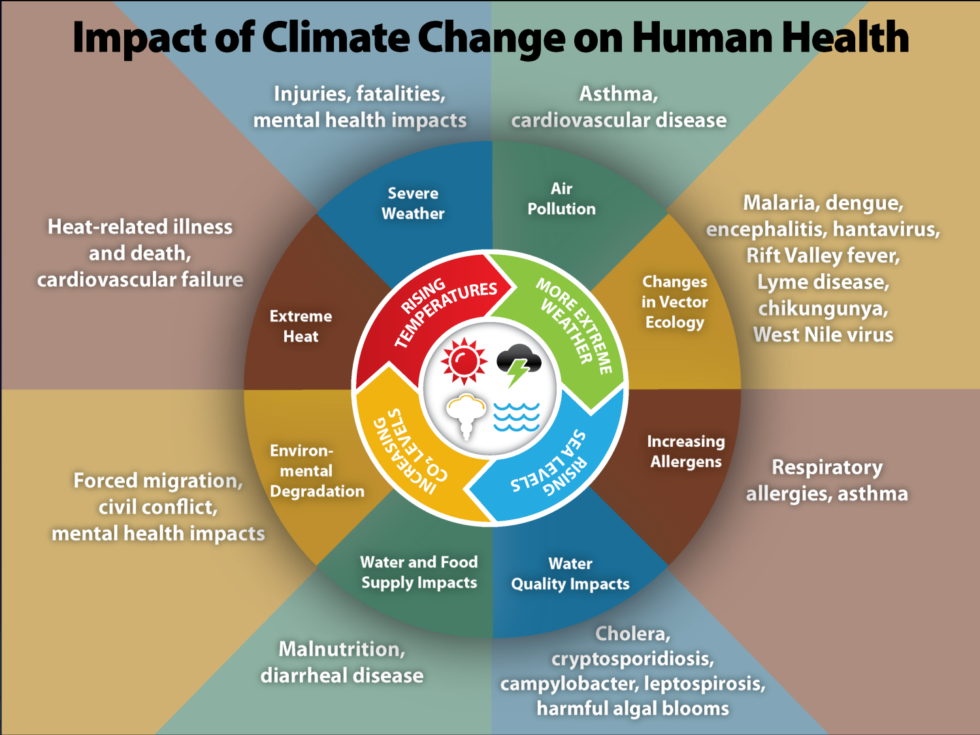
In a world where climate health is not prioritized, our children’s future becomes uncertain. Failing to take action to mitigate climate change can lead to a range of dire consequences. From rising temperatures to economic disruptions, the challenges ahead are daunting. It is vital that we recognize these potential consequences and act decisively to secure a better world for generations to come.
Rising Temperatures
A Heatwave of Challenges Without substantial efforts to reduce greenhouse gas emissions, global temperatures will continue to rise. This trend brings forth more frequent and severe heatwaves, posing risks to human health, agricultural productivity, and delicate ecosystems. Our children may face a world where extreme heat becomes the new norm.
Extreme Weather Events
Storms of Destruction Climate change intensifies extreme weather events, amplifying hurricanes, floods, droughts, and wildfires. The resulting devastation, displacement, and loss of life disrupt communities and economies, leaving our children vulnerable to the wrath of nature’s fury.
Sea-Level Rise
The Tides of Change As global temperatures rise, glaciers and polar ice caps melt, causing sea levels to surge. Coastal regions bear the brunt of this upheaval, facing increased risks of flooding, erosion, and the loss of valuable ecosystems. Our children’s future may be marked by constant battles against encroaching waters.
Ecosystem Disruption
Nature in Peril Climate change disrupts ecosystems, setting off a chain reaction that affects biodiversity, food chains, and the delicate balance of our planet. Species face extinction or forced migration, while the stability and functioning of ecosystems, which provide essential services for human well-being, are undermined.
Water Scarcity
Thirsting for Solutions Changing rainfall patterns and increased evaporation pave the way for water scarcity in numerous regions. Conflicts over water resources, agricultural challenges, and compromised access to clean drinking water become stark realities. Our children may inherit a world where water is a precious commodity.
Food Insecurity
Harvesting Uncertainty Climate change directly impacts agricultural productivity, leading to reduced crop yields, changing growing conditions, and the proliferation of pests and diseases. Food shortages, price volatility, and food insecurity become ever-present concerns, particularly in vulnerable regions. Our children may face a future where hunger and malnutrition persist.
Health Impacts
The Toll on Well-being The health consequences of climate change are significant, with increased risks of heat-related illnesses, respiratory diseases from air pollution, waterborne diseases, and the spread of vector-borne diseases to new regions. Children are particularly vulnerable to these health risks, jeopardizing their well-being and quality of life.
Economic Disruptions
The Cost of Inaction The impacts of climate change reverberate through economies, affecting industries such as agriculture, tourism, and insurance. The costs of adapting to climate change and dealing with its consequences strain resources, leading to economic instability and uncertainty for our children’s future.
Economic Disruptions
A World Divided Climate change exacerbates social inequalities, hitting vulnerable populations the hardest. Social unrest, displacement, and increased migration become prevalent, placing additional strains on societies and political systems. Our children may inherit a world grappling with the consequences of climate-driven disparities.
Forging a Resilient Future The challenges that lie ahead for our children if climate health is not prioritized are immense. To secure a more favorable future, we must act now. By implementing sustainable practices, transitioning to clean energy sources, protecting ecosystems, and fostering international cooperation, we can forge a path toward a more resilient and sustainable world. Let us take the necessary steps today to safeguard the well-being of our children and generations to come.

